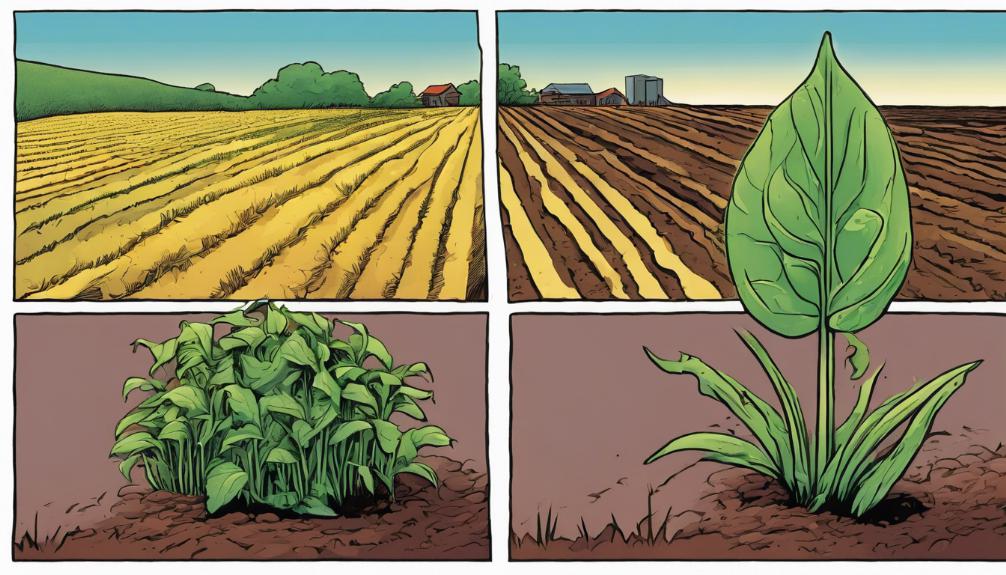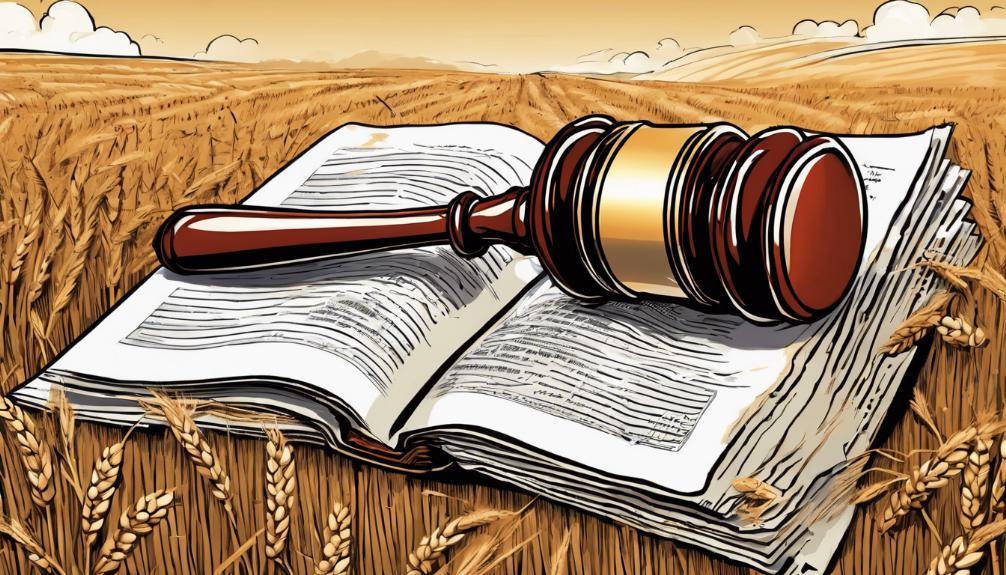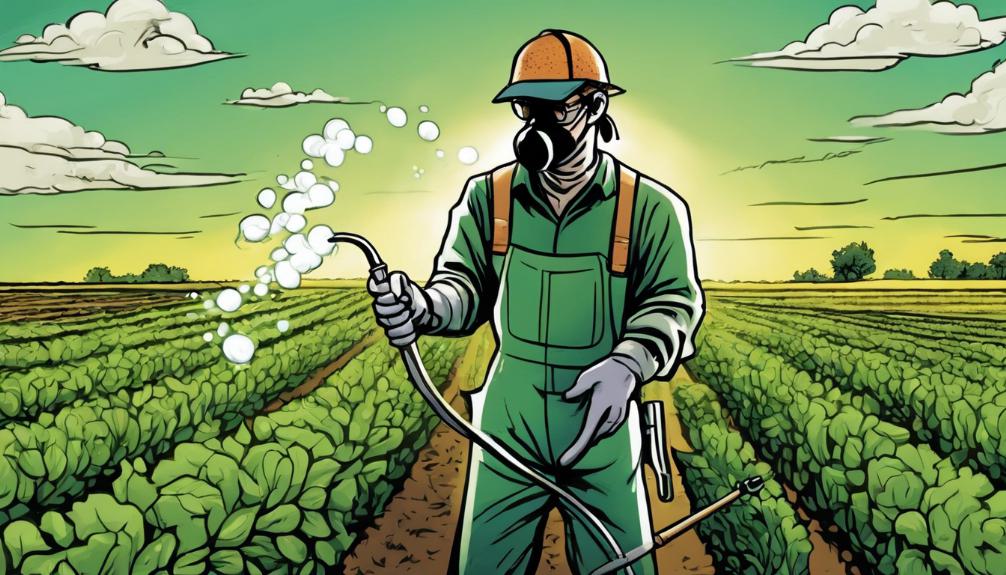ZPP Herbicide Lawsuit: Were You or A Loved One Diagnosed With Non-Hodgkins Lymphoma
The recent surge in lawsuits against ZPP herbicides, particularly by individuals diagnosed with Non-Hodgkin's Lymphoma, has brought to light crucial questions about the safety of glyphosate-based products. As these legal battles unfold, they not only seek justice for the affected parties but also aim to hold manufacturers accountable for the potential health risks associated with their products. This discussion invites a closer examination of the complex interplay between agricultural practices, chemical exposure, and public health. The outcomes of these cases could set significant precedents for future regulatory and legal considerations, underscoring the importance of understanding the implications for those exposed and the broader community.

Understanding ZPP Herbicides
ZPP Herbicides, recognized for their nonselective foliar systemic action, have become a focal point in legal discussions due to their main ingredient, glyphosate, and its potential link to Non-Hodgkins Lymphoma diagnoses. These herbicides, including ZPP 1560 Herbicide and ZPP 1560 Pro Herbicide, are designed to kill weeds by inhibiting a specific enzyme pathway necessary for plant growth. Their widespread use in agriculture and landscaping underscores the importance of understanding their composition and mechanism of action. The active concentration of 28.3% glyphosate in products like ZPP 1560 Liquid Concentrate highlights the potency and broad-spectrum application of these herbicides. As legal scrutiny intensifies, the safety and regulatory compliance of glyphosate-based products remain under critical examination.
Non-Hodgkins Lymphoma Link

A growing body of evidence suggests a potential link between exposure to glyphosate, the active ingredient in certain herbicides, and the development of Non-Hodgkins Lymphoma in individuals. Research indicates that individuals with prolonged or significant exposure to glyphosate-based products, such as ZPP 1560 Herbicide, may face an elevated risk of developing this type of cancer. Non-Hodgkins Lymphoma, a cancer that affects the lymphatic system, has been increasingly observed in agricultural workers, landscapers, and others in close contact with herbicides containing glyphosate. The mechanism by which glyphosate could induce cancerous changes is under investigation, but the correlation between its exposure and the incidence of Non-Hodgkins Lymphoma strengthens the case for further scientific scrutiny and precautionary measures.
Legal Actions and Compensation

Individuals diagnosed with Non-Hodgkins Lymphoma after exposure to glyphosate-based herbicides, such as ZPP 1560, are pursuing legal actions to seek compensation for their suffering and medical expenses. These lawsuits aim to hold manufacturers accountable for the alleged health risks associated with their products. Law firms specializing in toxic exposure cases have been rallying victims to come forward and file claims, emphasizing the potential for significant financial settlements or court awards. Legal strategies often involve demonstrating a direct link between the herbicide exposure and the cancer diagnosis, relying on scientific studies and expert testimonies. Success in these cases can result in compensation for medical bills, lost wages, pain and suffering, and sometimes punitive damages to penalize the responsible companies and deter future negligence.
ZPP Product Exposure

Exposure to glyphosate-based herbicides, including the ZPP 1560 series, has been frequently reported among agricultural workers and landscapers, raising concerns over potential health risks. These herbicides, notably the ZPP 1560 Pro Herbicide and ZPP 1560 Liquid Concentrate, contain 28.3% Glyphosate, a potent chemical associated with significant health concerns, including a potential link to Non-Hodgkins Lymphoma. The widespread use of these nonselective foliar systemic herbicides in various agricultural and landscaping applications exposes a large population to glyphosate, increasing the risk of adverse health outcomes. The accumulation of evidence pointing towards the harmful effects of such exposure underscores the need for heightened awareness and precautionary measures among those who handle and apply these chemical products.
Seeking Legal Advice

For those affected by glyphosate-related health issues, seeking legal advice is a crucial first step in understanding potential avenues for compensation. Legal experts specializing in herbicide lawsuits can offer guidance on the complex process of filing a claim against manufacturers of products like ZPP 1560 Herbicide. These attorneys are well-versed in the intricacies of drug injury litigation, ensuring that clients are informed about their rights and the evidence required to build a strong case. By consulting with a lawyer, individuals can assess the viability of their case, potential compensation, and the legal strategies best suited for their situation. This professional support is indispensable for navigating the legal landscape and pursuing justice for the harm suffered due to glyphosate exposure.
Frequently Asked Questions
How Does the Diagnosis Timeline of Non-Hodgkins Lymphoma After Exposure to ZPP Herbicides Affect the Validity of a Lawsuit Claim?
The timeline of a Non-Hodgkins Lymphoma diagnosis following exposure to ZPP herbicides is crucial in establishing the validity of a lawsuit claim. This period can substantiate the causal link between the herbicide exposure and the onset of the disease, thereby affecting the potential for compensation. Prompt and accurate documentation of exposure and diagnosis timelines are essential for supporting legal actions within the requisite statute of limitations for such cases.
What Are the Environmental Impacts of ZPP Herbicides, and Do These Impacts Have Any Relevance to Individual Lawsuit Claims?
The environmental impacts of ZPP herbicides, such as potential harm to ecosystems and biodiversity, are significant considerations. While these effects emphasize the need for regulatory scrutiny and environmental protection, their direct relevance to individual lawsuit claims primarily hinges on establishing a causal link between exposure and specific health outcomes, such as Non-Hodgkins Lymphoma. Thus, while environmental impacts underscore broader concerns, legal claims focus on personal injury and the necessity for scientific evidence of causation.
Can Individuals Who Indirectly Came Into Contact With ZPP Herbicides, Such as Through Contaminated Water or Food, File a Lawsuit for Non-Hodgkins Lymphoma Diagnosis?
Individuals who have been diagnosed with Non-Hodgkin's Lymphoma after indirect exposure to herbicides, such as through contaminated water or food, may have grounds to file a lawsuit. Legal precedents and the nature of herbicide lawsuits suggest that if the exposure can be linked to the illness, affected parties could potentially seek compensation. It is advisable for such individuals to consult with legal professionals who specialize in herbicide lawsuit cases to explore their options.
How Are Settlements for ZPP Herbicide Lawsuits Typically Calculated, and What Factors Influence the Amount of Compensation Awarded?
Settlements for herbicide lawsuits, such as those involving ZPP herbicide, are calculated based on several factors. These include the severity of the illness, the extent of exposure, medical expenses incurred, lost wages, and pain and suffering. Additionally, the strength of the evidence linking the herbicide to Non-Hodgkin's Lymphoma plays a critical role. Each case is unique, and compensation varies depending on these individual circumstances and the legal arguments presented.
Are There Any Ongoing Studies or Research Efforts Aimed at Further Understanding the Link Between ZPP Herbicide Exposure and Non-Hodgkins Lymphoma That Could Impact Future Lawsuits?
Ongoing research and studies are crucial in elucidating the connection between herbicide exposure and Non-Hodgkin's Lymphoma. These investigations are pivotal, as they can significantly impact future litigation by providing stronger evidence of causation. By continuously examining the effects of herbicides like those containing glyphosate, scientists aim to deepen understanding of their potential health risks. This evolving body of evidence could influence the outcomes of related lawsuits, potentially affecting compensation and legal standards.

This post has been generated by AI and was not reviewed by editors. This is Not legal advice. Please consult with an attorney.




